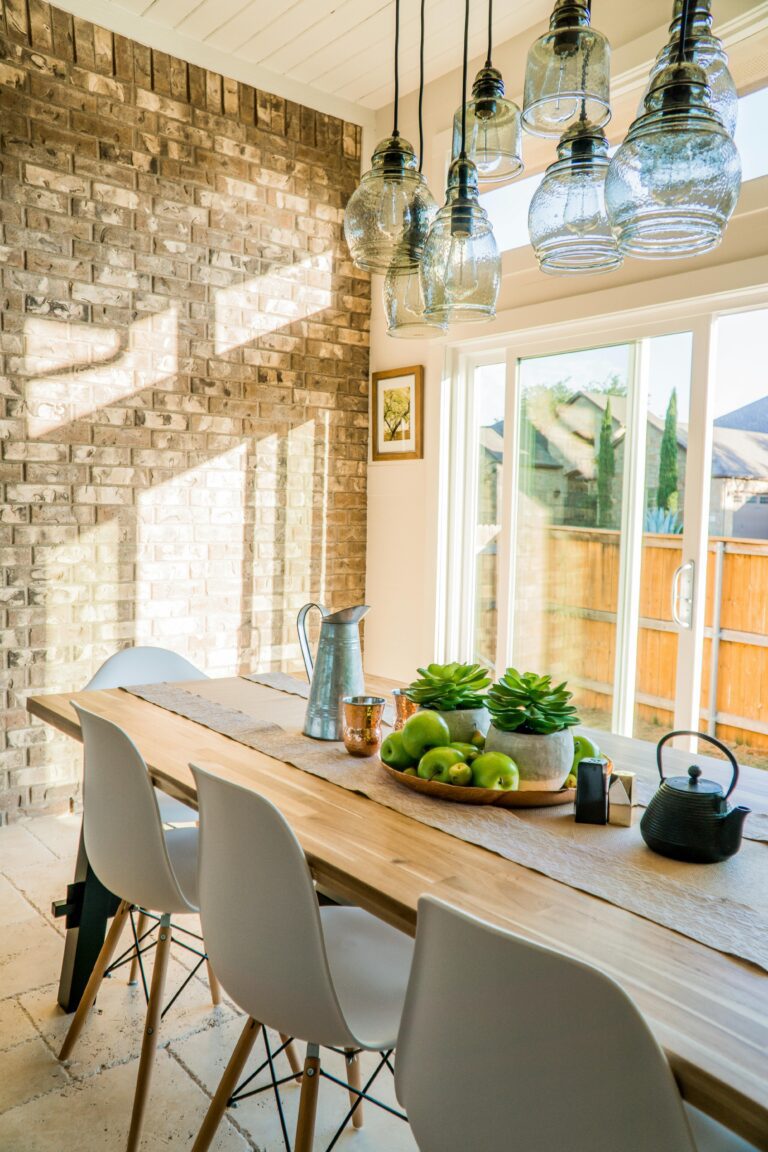How to Know if You Can Afford a Luxury Property
How to Know if You Can Afford a Luxury Property


Table of Contents
Introduction
In the realm of real estate, the allure of luxury properties can be irresistible. The idea of owning a lavish mansion, a penthouse with panoramic views, or a sprawling estate nestled in picturesque landscapes often captures the imagination. However, the decision to invest in luxury real estate is not one to be taken lightly. Far too often, individuals embark on this journey without fully comprehending the financial implications. This article aims to shed light on the crucial considerations involved in determining whether one can truly afford a luxury property. From understanding the true cost to assessing your financial readiness and exploring financing options, we delve deep into the intricacies of luxury property ownership.
In the end, you will find that although there are certainly steps to take and research to be done, there’s always a way if it is the home you are meant to own.


Understanding the True Cost of Luxury Properties
The allure of luxury properties often lies in their opulence and grandeur, but beneath the surface of elegance lies a complex web of expenses that extend far beyond the initial purchase price. To truly grasp the financial commitment involved in luxury property ownership, one must delve into the various costs associated with maintaining and sustaining such prestigious residences.
The journey into luxury real estate begins with a substantial investment, as these properties typically command premium prices due to their exclusive features, prime locations, and prestige. Whether it’s a sprawling estate in the countryside, a sleek penthouse in a cosmopolitan city, or a waterfront villa with panoramic views, the initial purchase price sets the stage for the financial commitments to come.
Luxury properties demand meticulous maintenance to preserve their pristine condition and uphold their status as symbols of affluence. From routine landscaping and pool maintenance to specialized services for high-end appliances and finishes, the costs of upkeep can quickly escalate. Moreover, the scale and complexity of maintenance projects in luxury properties often require skilled professionals and bespoke solutions, further driving up expenses.
With great luxury comes great responsibility, including hefty property taxes and insurance premiums. Luxury properties are often subject to higher tax rates due to their elevated values, imposing a significant financial burden on homeowners. Additionally, insurance coverage for luxury properties tends to be more comprehensive and expensive, reflecting the increased risk exposure associated with high-value assets.
Many luxury properties are situated within exclusive gated communities or upscale condominium complexes, which often come with mandatory homeowner association (HOA) fees. These fees contribute to the maintenance of communal amenities, security services, and other shared expenses. While these amenities enhance the quality of life for residents, they also entail ongoing financial obligations that should be factored into the overall cost of ownership.
The lavish amenities and expansive living spaces synonymous with luxury properties inevitably translate into higher utility costs. Whether it’s heating and cooling vast interiors, powering state-of-the-art entertainment systems, or maintaining sprawling landscapes with elaborate irrigation systems, the utility bills for luxury properties can be substantial.
Beyond the tangible expenses of luxury property ownership lie the intangible opportunity costs associated with tying up substantial financial resources in real estate. The capital invested in purchasing and maintaining a luxury property could potentially yield higher returns if diversified across other investment vehicles. Thus, prospective buyers must carefully weigh the opportunity costs against the lifestyle benefits of owning a luxury property.
In summary, the true cost of luxury properties extends beyond the glamorous facade to encompass a myriad of ongoing expenses and financial considerations. By gaining a comprehensive understanding of these costs, prospective buyers can make informed decisions and embark on their luxury property journey with financial prudence and confidence.


Assessing Your Financial Situation
Before embarking on the journey of acquiring a luxury property, it’s imperative to conduct a thorough assessment of your financial situation. This involves a comprehensive evaluation of various financial aspects to determine your readiness and ability to afford a luxury property.
Begin by scrutinizing your income sources, including salaries, bonuses, investment dividends, and any other sources of revenue. Calculate your total annual income, accounting for fluctuations and potential future changes. It’s crucial to have a stable and substantial income stream to support the ongoing expenses associated with luxury property ownership.
Assess your assets, including cash reserves, investment portfolios, real estate holdings, and any other valuable possessions. Simultaneously, evaluate your liabilities, such as outstanding debts, mortgages, and other financial obligations. Calculate your net worth by subtracting your liabilities from your assets to ascertain your overall financial position.
Develop a detailed budget that accounts for your income, expenses, and savings goals. Factor in the anticipated costs of owning a luxury property, including mortgage payments, property taxes, maintenance expenses, and discretionary spending. Conduct a cash flow analysis to ensure that your income comfortably exceeds your expenses, leaving room for savings and unexpected financial contingencies.
Establishing an adequate emergency fund is essential to safeguard against unforeseen expenses or income disruptions. Aim to set aside three to six months’ worth of living expenses in a liquid savings account to provide financial security and peace of mind. Additionally, consider maintaining reserves specifically earmarked for luxury property-related expenses, such as renovations, upgrades, or unexpected repairs.
Evaluate your debt-to-income ratio, which compares your total debt obligations to your gross income. Lenders often use this metric to assess borrowers’ creditworthiness and determine loan eligibility. Aim to keep your debt-to-income ratio below 43%, as exceeding this threshold may signal financial strain and hinder your ability to secure financing for a luxury property.
Assess how purchasing a luxury property aligns with your long-term financial goals and aspirations. Consider the impact of tying up significant financial resources in real estate on your ability to achieve other objectives, such as retirement savings, education funding, or wealth accumulation. Strive for a balanced approach that prioritizes both short-term lifestyle desires and long-term financial security.
By conducting a comprehensive assessment of your financial situation, you can gain clarity on your ability to afford a luxury property and make informed decisions that align with your financial goals and priorities. Remember to seek guidance from financial professionals, such as wealth managers or financial advisors, to ensure that your luxury property investment aligns with your overall financial strategy.


Factoring in Additional Expenses
Beyond the initial purchase price and standard ongoing costs, luxury property ownership entails a range of additional expenses that should be carefully considered and factored into your financial planning. These supplementary costs, unique to upscale living, can significantly impact your overall affordability and long-term financial stability.
Many luxury properties are nestled within exclusive gated communities or high-end condominium complexes that offer a plethora of amenities and services. However, access to these amenities often comes with mandatory homeowner association fees. These fees contribute to the maintenance and operation of communal facilities such as swimming pools, fitness centers, concierge services, security personnel, landscaping, and more. While these amenities enhance the quality of life and prestige associated with luxury living, they also represent an ongoing financial commitment that should be accounted for in your budgeting.
Luxury properties often feature high-end finishes, state-of-the-art appliances, and expansive landscapes that require specialized maintenance and services. From custom-built swimming pools and intricate landscaping to sophisticated home automation systems and bespoke interior furnishings, maintaining the luxury lifestyle comes with a price tag. Engaging skilled professionals and service providers to ensure the proper care and upkeep of these amenities is essential but can add significant expenses to your annual budget.
For absentee homeowners or those with busy lifestyles, hiring a property management company to oversee day-to-day operations and maintenance tasks is a common practice. Property management fees typically cover a range of services, including regular inspections, repairs and maintenance, tenant management (if applicable), and administrative tasks. While outsourcing these responsibilities can alleviate the burden of property ownership, it’s essential to budget for the associated management fees, which are often calculated as a percentage of the property’s rental income or value.
Luxury properties often feature high-value assets such as fine art collections, antique furniture, luxury vehicles, and other valuable possessions that require specialized insurance coverage. Standard homeowner’s insurance policies may not provide adequate protection for these assets, necessitating additional insurance policies or endorsements to safeguard against theft, damage, or loss. The premiums for such specialized insurance coverage can be substantially higher than those for standard policies, reflecting the increased value and risk associated with luxury assets.
Many luxury properties offer concierge services and personalized lifestyle amenities to cater to the discerning needs and preferences of affluent homeowners. These services may include personal chefs, housekeeping staff, chauffeurs, event planners, and exclusive access to private clubs or social events. While these amenities contribute to a luxurious and convenient lifestyle, they come at an additional cost that should be factored into your overall budgeting for luxury property ownership.
By proactively anticipating and budgeting for these additional expenses, you can ensure that your luxury property remains a source of enjoyment and fulfillment without compromising your financial stability. Consulting with financial advisors and real estate professionals can provide valuable insights and guidance in navigating the complexities of luxury property ownership and optimizing your financial strategy.


Consulting with Financial Advisors
Navigating the intricate landscape of luxury property ownership necessitates expert guidance and strategic financial planning. Engaging the services of experienced financial advisors who specialize in serving high-net-worth individuals can provide invaluable insights and ensure that your luxury property investment aligns with your overall financial objectives.
Financial advisors conduct a thorough analysis of your financial situation, taking into account your income, assets, liabilities, and long-term financial goals. By gaining a holistic understanding of your financial landscape, they can offer tailored advice and recommendations that align with your unique circumstances and aspirations.
Luxury property ownership comes with inherent risks and uncertainties, ranging from market fluctuations and economic downturns to unforeseen maintenance expenses and liability risks. Financial advisors employ sophisticated risk management strategies to mitigate these risks and safeguard your wealth. This may involve diversifying your investment portfolio, implementing insurance solutions, and establishing contingency plans to address unexpected challenges.
The tax implications of luxury property ownership can be complex and substantial. Financial advisors employ tax optimization strategies to minimize your tax liability while maximizing your financial efficiency. Additionally, they assist with estate planning to ensure the seamless transfer of wealth and assets to future generations, taking into account estate tax considerations and legal intricacies.
Preserving and growing your wealth is a fundamental objective of financial planning, particularly in the context of luxury property ownership. Financial advisors devise investment strategies tailored to your risk tolerance, time horizon, and financial objectives, with a focus on generating sustainable returns and preserving capital over the long term. They leverage a diverse range of investment vehicles, including stocks, bonds, real estate investment trusts (REITs), and alternative assets, to optimize your investment portfolio.
When purchasing a luxury property, selecting the appropriate financing option is crucial to optimizing your financial position. Financial advisors assess your financing needs and explore mortgage solutions that offer favorable terms and optimal flexibility. They leverage their industry expertise and network of lending partners to secure competitive interest rates, favorable loan terms, and customized financing structures that align with your financial goals.
Financial advisors provide ongoing monitoring and evaluation of your financial plan, making adjustments as needed to adapt to changing market conditions, life events, and financial goals. They offer proactive guidance and support, helping you navigate complex financial decisions and seize opportunities for wealth accumulation and preservation.
By partnering with knowledgeable and experienced financial advisors, you can navigate the complexities of luxury property ownership with confidence and peace of mind. Their expertise, strategic insights, and personalized guidance empower you to make informed decisions that optimize your financial well-being and enhance your overall quality of life.


Exploring Financing Options
While some individuals may have the financial means to purchase a luxury property outright, many prospective buyers opt to explore financing options to spread the cost over time and optimize their financial strategy. From traditional mortgages to alternative lending solutions, there are various avenues available to secure financing for a luxury property. By carefully evaluating these options and selecting the most suitable financing structure, buyers can maximize their purchasing power and preserve liquidity for other investment opportunities.
Traditional mortgage loans are a common financing option for luxury property purchases, offering competitive interest rates and flexible repayment terms. These loans typically require a substantial down payment, often ranging from 20% to 30% of the property’s purchase price, although higher down payments may be required for particularly high-value properties.
Borrowers undergo a thorough credit evaluation and income verification process to qualify for a mortgage loan, and the property itself serves as collateral for the loan. Traditional mortgages are available from a variety of lenders, including banks, credit unions, and mortgage brokers, each offering different loan products and terms.
Jumbo loans are specialized mortgage products designed to finance high-value properties that exceed the conforming loan limits set by government-sponsored entities such as Fannie Mae and Freddie Mac. Since luxury properties often exceed these limits, jumbo loans are a common financing option for upscale real estate transactions. Jumbo loans typically offer higher loan amounts and more lenient qualification criteria than conventional mortgages but may come with slightly higher interest rates and stricter eligibility requirements. Borrowers considering a jumbo loan should be prepared to provide extensive documentation of their income, assets, and credit history to secure financing.
Portfolio loans are a type of mortgage financing offered by private banks and lenders, leveraging the borrower’s investment portfolio as collateral for the loan. This alternative financing option allows high-net-worth individuals to unlock liquidity from their investment holdings without liquidating assets or disrupting their investment strategy. Portfolio loans offer greater flexibility in terms of loan structure, eligibility criteria, and underwriting standards, making them an attractive option for luxury property buyers with substantial investment portfolios.
Interest-only loans are a specialized mortgage product that allows borrowers to pay only the interest on the loan for a specified period, typically ranging from five to ten years, before transitioning to fully amortizing payments. While interest-only loans offer lower initial monthly payments and greater cash flow flexibility, they come with higher overall interest costs and the risk of payment shock once the interest-only period expires. Interest-only loans may be suitable for luxury property buyers with irregular income streams or short-term liquidity needs but require careful consideration of the long-term financial implications.
Bridge loans are short-term financing solutions designed to bridge the gap between the purchase of a new property and the sale of an existing property. These interim loans provide temporary funding to facilitate a smooth transition between real estate transactions, allowing buyers to secure a luxury property quickly without being contingent on the sale of their current home. Bridge loans typically have higher interest rates and shorter repayment terms than traditional mortgages but offer expedited approval processes and flexible qualification criteria. Borrowers should have a clear exit strategy in place to repay the bridge loan once their existing property sells.
In addition to traditional mortgage products, luxury property buyers may explore creative financing strategies to structure a deal that meets their unique financial needs and objectives. Seller financing, lease options, and equity partnerships are examples of alternative financing arrangements that allow buyers and sellers to negotiate customized terms and leverage creative solutions to facilitate a transaction. While these unconventional financing methods may require careful negotiation and legal scrutiny, they can offer greater flexibility and customization than traditional mortgage loans.
By exploring the diverse range of financing options available for luxury property purchases, buyers can tailor their financing strategy to align with their financial goals, liquidity needs, and risk tolerance. Consulting with experienced mortgage lenders, financial advisors, and real estate professionals can provide valuable insights and guidance in selecting the most suitable financing structure for your luxury property investment.


Making an Informed Decision
Armed with a comprehensive understanding of the costs and considerations involved in luxury property ownership, it’s time to embark on the process of making an informed decision. Whether you’re in the market for a sprawling estate, a penthouse retreat, or a waterfront villa, careful evaluation and strategic decision-making are paramount to ensuring a successful and fulfilling real estate transaction. In this section, we offer practical tips and guidelines to guide you through the process of selecting and acquiring the luxury property that best aligns with your financial goals, lifestyle preferences, and long-term aspirations.
Begin by researching and evaluating a diverse range of luxury properties that meet your criteria and preferences. Consider factors such as location, size, architectural style, amenities, and proximity to essential services and recreational facilities. Attend open houses, schedule property tours, and engage with real estate agents to gain firsthand insight into the unique features and characteristics of each property.
Negotiation is a critical aspect of the luxury property buying process, allowing buyers to secure favorable terms and pricing while addressing any concerns or contingencies. Work closely with your real estate agent to craft a competitive offer that reflects the property’s market value, prevailing market conditions, and your budget constraints. Be prepared to negotiate earnestly but respectfully, leveraging market insights and comparative analysis to support your position.
Thorough due diligence is essential to uncovering any potential issues or red flags associated with a luxury property before finalizing the transaction. This may involve conducting property inspections, reviewing relevant documents and disclosures, and consulting with legal and financial experts to identify any legal, environmental, or structural concerns. Pay close attention to zoning regulations, land use restrictions, and any pending litigation or disputes that may impact the property’s value or future development potential.
When evaluating luxury properties, it’s essential to consider their long-term value and investment potential beyond their aesthetic appeal and immediate gratification. Assess factors such as market trends, neighborhood dynamics, and future development plans to gauge the property’s appreciation potential and resilience to economic fluctuations. Consult with real estate professionals and market analysts to gain insights into the local market dynamics and make informed projections about the property’s future performance.
Throughout the luxury property buying process, seek guidance from experienced professionals who can provide valuable expertise and advice. Enlist the services of reputable real estate agents, legal advisors, financial planners, and home inspectors to guide you through each stage of the transaction and ensure that your interests are protected. Leverage their industry knowledge, negotiation skills, and network of contacts to streamline the process and maximize the value of your investment.
Ultimately, trust your instincts and intuition when making a decision about purchasing a luxury property. While financial considerations and market analysis are essential, it’s also crucial to listen to your gut feelings and emotional responses to the properties you encounter. A luxury property should not only meet your practical needs and investment objectives but also resonate with your personal tastes, lifestyle preferences, and aspirations for the future.
By approaching the luxury property buying process with diligence, discernment, and strategic planning, you can make a confident decision that aligns with your financial goals and lifestyle aspirations. Remember to leverage the expertise of trusted professionals, conduct thorough due diligence, and trust your instincts to ensure a successful and fulfilling real estate transaction.


Ensuring Financial Stability in Luxury Property Ownership
Owning a luxury property is a significant milestone that symbolizes achievement, success, and the realization of lifelong dreams. However, amidst the allure of opulent living, it’s essential to prioritize financial stability and prudent decision-making to safeguard your long-term prosperity. In this concluding section, we reiterate the importance of approaching luxury property ownership with diligence, foresight, and a strategic mindset to ensure that your investment enhances your lifestyle while preserving your financial well-being.
True affluence is not merely defined by the extravagance of possessions but by the harmonious balance between material wealth and financial security. While luxury properties offer unparalleled comfort, elegance, and prestige, their ownership entails a range of financial commitments and responsibilities that must be carefully managed and prioritized. By adopting a balanced approach that integrates lifestyle desires with prudent financial planning, you can enjoy the benefits of luxury living without compromising your long-term financial stability.
In the pursuit of luxury, it’s easy to succumb to the allure of excess and extravagance, often at the expense of sound financial judgment. However, prudence and restraint are essential virtues that should guide your decisions and actions as a luxury property owner. Prioritize needs over wants, distinguish between essential expenses and discretionary indulgences, and maintain a disciplined approach to budgeting and financial management. By exercising prudence and moderation, you can mitigate financial risks and build a solid foundation for sustainable wealth accumulation and preservation.
Luxury property ownership is not merely a short-term indulgence but a long-term commitment that requires careful consideration of future implications and contingencies. As you embark on your journey as a luxury property owner, prioritize long-term financial planning and wealth management strategies that align with your evolving goals and aspirations. Whether it’s retirement planning, estate preservation, or generational wealth transfer, proactively address these considerations to ensure a legacy of financial prosperity for yourself and future generations.
Throughout the process of acquiring and owning a luxury property, seek guidance from seasoned professionals who can offer invaluable expertise, insights, and support. From financial advisors and real estate agents to legal counselors and property managers, leverage their specialized knowledge and experience to navigate complex financial and legal landscapes with confidence and clarity. By assembling a trusted team of advisors, you can make informed decisions and mitigate risks effectively, ensuring a smooth and successful luxury property ownership experience.
In conclusion, luxury property ownership is a journey that transcends mere material possessions, encompassing lifestyle aspirations, financial goals, and personal fulfillment. By approaching this journey with prudence, foresight, and a commitment to financial stability, you can transform your dream of luxury living into a sustainable reality that enriches your life and secures your future prosperity. Remember, true affluence is not measured by the extravagance of possessions but by the peace of mind and fulfillment that come from prudent financial planning and mindful living.
FAQ Section
A luxury property is typically characterized by its exceptional quality, exclusive features, and premium amenities that set it apart from standard residential properties. These properties often boast lavish architectural designs, high-end finishes, state-of-the-art technology, and expansive living spaces. Additionally, luxury properties are situated in desirable locations such as waterfronts, prestigious neighborhoods, or scenic landscapes, offering breathtaking views and unparalleled privacy. Ultimately, the designation of a property as “luxury” is subjective and may vary depending on regional market trends, buyer preferences, and prevailing standards of opulence.
Assessing your affordability for a luxury property involves conducting a comprehensive evaluation of your financial situation, lifestyle preferences, and long-term goals. Begin by calculating your total income, assets, and liabilities to determine your financial capacity. Consider the ongoing expenses associated with luxury property ownership, including mortgage payments, property taxes, maintenance costs, and insurance premiums. Consult with financial advisors and real estate professionals to gain insights into market trends, financing options, and affordability thresholds. Ultimately, the decision to purchase a luxury property should align with your financial means, lifestyle aspirations, and risk tolerance.
When purchasing a luxury property, it’s essential to avoid common pitfalls that could undermine your investment and financial well-being. Some common mistakes to avoid include:
- Overextending your budget: Resist the temptation to stretch your finances beyond your means to afford a luxury property. Set a realistic budget and stick to it to avoid financial strain and potential foreclosure.
- Underestimating ongoing expenses: Factor in the full cost of luxury property ownership, including maintenance, taxes, insurance, and homeowner association fees, to avoid financial surprises.
- Neglecting due diligence: Conduct thorough due diligence, including property inspections, title searches, and legal reviews, to uncover any potential issues or risks associated with the property.
- Ignoring market trends: Stay informed about market trends, pricing dynamics, and emerging developments in the luxury real estate market to make informed decisions and negotiate effectively.
- Disregarding resale value: Consider the long-term resale potential of the property and its appeal to future buyers to ensure a sound investment and preserve liquidity.
By avoiding these common mistakes and approaching the luxury property buying process with diligence and discernment, you can maximize the value of your investment and minimize financial risks.
Owning a luxury property offers a range of advantages beyond the obvious prestige and status associated with upscale living. Some benefits of luxury property ownership include:
- Enhanced quality of life: Luxury properties often feature spacious interiors, high-end amenities, and exclusive services that elevate the living experience and provide unparalleled comfort and convenience.
- Investment potential: Luxury properties have historically demonstrated strong appreciation potential, offering the opportunity for long-term wealth accumulation and preservation.
- Status and prestige: Luxury properties serve as symbols of success, affluence, and accomplishment, enhancing your social standing and reputation within your community.
- Personalization and customization: Luxury properties offer the flexibility to customize and personalize your living space according to your unique tastes, preferences, and lifestyle needs.
- Privacy and security: Many luxury properties are situated in gated communities, exclusive neighborhoods, or secluded estates, providing a sense of privacy, seclusion, and security for homeowners and their families.
Fractional Ownership: Maximizing Opportunities in the Real Estate Market
Fractional ownership can often be a great option for purchasing and selling luxury property. All of
5 Proven Strategies to Boost Your Home Equity
Want to boost your home equity? Here are five proven strategies that work.
Could I ‘Trade Up’ to a Luxury Home?
Can you afford to 'trade up' to a luxury property? How to know if you have enough equity in your cur












